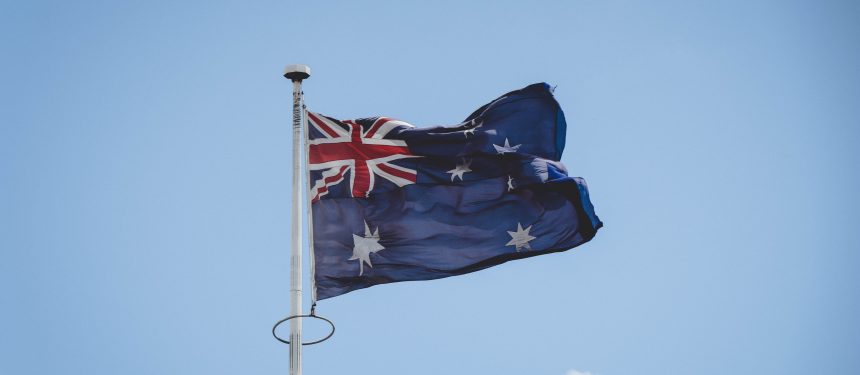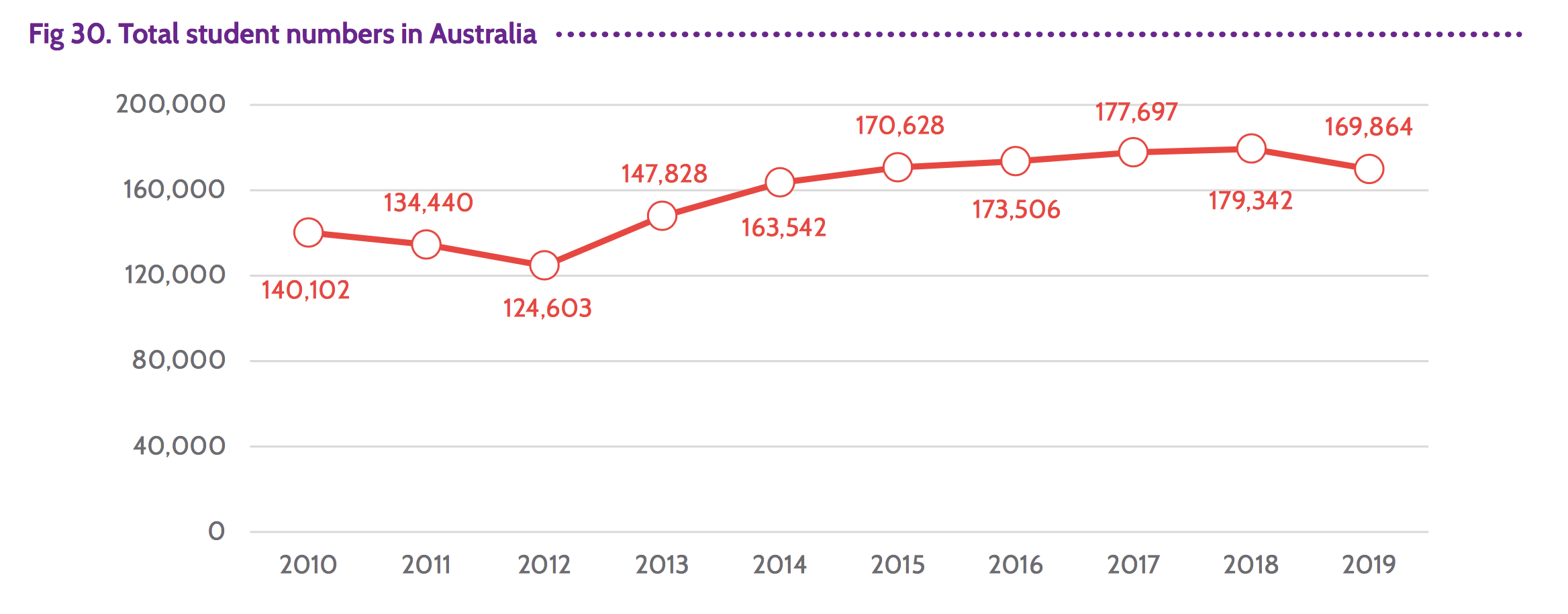The Australian ELICOS sector recorded its first decrease in student numbers since 2012 last year, English Australia‘s annual market report has revealed.
News and business analysis for Professionals in International Education
Have some pie!
Australia: ELICOS student numbers drop for first time since 2012
 Compared with other destinations, Australia performed fairly well in terms of student weeks in 2019, but faired less impressively in terms of total student numbers. Photo: Pexels/ Hugo Heimendinger
Compared with other destinations, Australia performed fairly well in terms of student weeks in 2019, but faired less impressively in terms of total student numbers. Photo: Pexels/ Hugo Heimendinger
Produced in partnership with BONARD and supported by the Department of Education, Skills and Employment, the report found that in 2019 the total student numbers in Australia dropped 5% to almost 170,000, having stood at nearly 180,000 in 2018.
“In terms of student numbers, other destinations seem to have performed better than Australia”
The total student weeks remained more stable, decreasing by around 1% year-on-year, from around 2,334,300 in 2018 to some 2,317,800 in 2019.
This resulted in the average length of stay increasing from 13 weeks to 13.6 weeks in 2019, while the sector’s total economic impact rose from AUS$2.35 billion to $2.38bn in 2019.
Of the top 10 source countries, only four sent a higher number of students in 2019 compared with the previous year.
Numbers of students from the biggest source country – China – fell by 15% from almost 42,600 in 2018 to around 36,200 in 2019.
Almost 5,000 fewer students came from Japan in 2019, with almost 21,000 arriving in Australia.
Malaysia, South Korea and Brazil dropped by 27%, 14% and 7% in 2019 respectively, albeit from lower starting numbers.
While the Asia Pacific and Middle East & Africa sent fewer students in 2019 (110,300 and nearly 5,300 students respectively), in total the Americas sent 6% more students, reaching more than 35,700 students, and Europe rose by 1% to almost 18,600 students.
Numbers of students from Colombia increase by almost 2,500 in 2019, while Nepal and India sent around 1,000 more students each.
The surge in numbers coming from Colombia, along with a longer course duration, means the country established itself as the second most important market for the ELICOS sector in Australia in terms of student weeks, outperforming Brazil, the report noted.
“Thailand and India increased their student numbers and reinforced their places in the student week ranking. Among other developments, Spain surpassed Vietnam to take the 9th spot. Both source countries now account for 2 per cent of the market.”
The top 10 markets represent 75% of all students and 76% of all student weeks spent in Australia, the report highlighted.
All Australian states saw drops in total student numbers, bar South Australia which saw a 4% increase in ELICOS numbers.
However, SA reported a fall in total student weeks (10 weeks in 2019 compared to 16.8 weeks in 2018), as did New South Wales and Western Australia.
“New South Wales remained the most desired destination for English language students, while Victoria outperformed Queensland to become the 2nd most popular state. Students in Victoria also studied the longest, averaging 14.9 weeks of study,” the report noted.
Despite an 8% decrease in student numbers, Queensland’s student weeks jumped by 5% in 2019, it added.
While 2019 Australian student visa commencement data recorded a 1% increase in ELICOS, the report paints a true picture of the sector, according to English Australia. Of Australia’s 326 active colleges in 2019, 166 participated in the survey.
A “sharp decline” in visitor visa holders has had a broad impact, the association noted, while ELICOS student visa holders peaked in 2018.
“2019 was a mixed development year for Australia,” BONARD head of Research, Patrik Pavlacic said.
“2019 was a mixed development year for Australia”
While student weeks remained “fairly flat”, student numbers situation was a bit worse, “due to the decreases in most visitor visa holders”, he said.
“It can be noted that Australia performed relatively well, as in other destinations we are going to mostly see decreases in student weeks,” Pavlacic added.
“However, in terms of student numbers, other destinations seem to have performed better than Australia.”
English Australia has previously warned that Covid-19 is “decimating” Australia’s ELICOS sector.
“The Covid-19 pandemic is changing the global environment but having a complete picture of the landscape is valuable. English Australia will draw on this data to call for greater support for our sector not only during this pandemic but whenever necessary in the future,” English Australia CEO, Brett Blacker said.
Still looking? Find by category:



